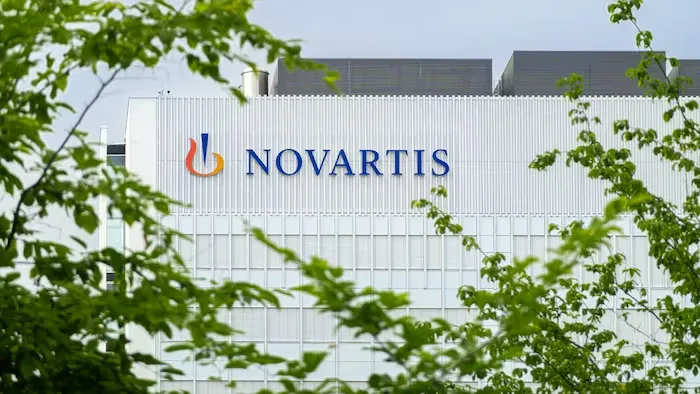
New Novartis data further support benefits of Kesimpta® in relapsing MS following switch from oral disease modifying therapies
- ARTIOS Phase IIIb, open-label, single-arm, prospective study showed a substantial reduction in disease activity in people with relapsing multiple sclerosis (RMS) following switch to Kesimpta after breakthrough disease* on fingolimod or fumarate-based therapies1
- Following switch to Kesimpta, over 90% of people with RMS showed no evidence of disease activity (NEDA-3) and low annualized relapse rates (ARR) were observed1
- In the separate ALITHIOS open-label extension study, more than 90% of patients receiving first-line Kesimpta were progression-free for up to seven years, reinforcing benefit of introducing Kesimpta early2
Novartis today announced new data from two Kesimpta® (ofatumumab) studies in relapsing multiple sclerosis (RMS) that will be presented at the European Committee for Treatment and Research in Multiple Sclerosis (ECTRIMS) 2025 Annual Meeting in Barcelona, Spain, on September 24–26.
Data from the ARTIOS Phase IIIb, open-label, single-arm, prospective study showed that patients who switched to Kesimpta after breakthrough disease on fingolimod or fumarate-based therapies had a substantial reduction in disease activity, as shown by a low annualized relapse rate (ARR, 0.06 over 96 weeks)1. The data also showed an almost complete suppression of MRI activity and over 9 out of 10 participants achieving no evidence of disease activity (NEDA-3)1. No new safety concerns were observed following the switch to Kesimpta, irrespective of the last prior disease modifying treatment (DMT)1.
Lead investigator Dr. Riley Bove of the University of California, San Francisco, stated, “These findings add to the growing evidence on the efficacy and safety of ofatumumab after a switch from oral DMTs. Crucially, we observed robust disease control sustained over two years in patients with RMS who did not respond well to oral DMTs.”
The separate ALITHIOS open-label extension study includes recently diagnosed (≤3 years) treatment-naïve (RDTN) people with RMS receiving first-line continuous Kesimpta2. The study showed more than 90% achieved NEDA-3 at seven years2. Long-term efficacy was measured by sustained low ARR and profound suppression of MRI activity as well as a favorable safety profile, with no new safety concerns, in both the overall population and RDTN patients2,3.
“The long-term data from these studies underscore Kesimpta’s ability to deliver sustained efficacy and a consistent safety profile for people with RMS,” said Norman Putzki, M.D., Ph.D., Global Head Development, Neuroscience & Gene Therapy, Novartis. “These findings reinforce Kesimpta’s position as a therapy that empowers patients to take early control of their disease.”
About Multiple Sclerosis
Multiple sclerosis (MS) is a chronic inflammatory disease of the central nervous system characterized by myelin destruction and axonal damage in the brain, optic nerves and spinal cord4. MS, which affects nearly 3 million people worldwide5, can be characterized into four main types: clinically isolated syndrome (CIS), relapsing-remitting (RRMS), secondary progressive (SPMS) and primary progressive (PPMS)6. The various forms of MS can be distinguished based on whether a patient experiences relapses (clearly defined acute inflammatory attacks of worsening neurological function), and/or whether they experience progression of neurologic damage and disability from the onset of the disease4.
About Kesimpta® (ofatumumab)
Kesimpta is a targeted, precisely dosed and delivered B-cell therapy that provides the flexibility of self-administration for adults with relapsing forms of multiple sclerosis (RMS). It is an anti-CD20 monoclonal antibody (mAb) self-administered by a once-monthly injection, delivered subcutaneously7–10. Initial doses of Kesimpta are at Weeks 0, 1 and 2, with the first injection performed under the guidance of a healthcare professional7,8. The selective mechanism of action and subcutaneous administration of Kesimpta allows precise delivery to the lymph nodes, where B-cell depletion in MS is needed, and preclinical studies have shown that it may preserve the B-cells in the spleen11. Ofatumumab was originally developed by Genmab and licensed to GlaxoSmithKline. Novartis obtained rights for ofatumumab from GlaxoSmithKline in all indications, including RMS, in December 201512. Kesimpta has been approved for the treatment of relapsing forms of multiple sclerosis in over 92 countries worldwide with more than 150,000 patients treated as of August 20257,8,13.
Novartis in Neuroscience
At Novartis, we have been tackling neurological conditions for more than 80 years, launching transformative treatments which have made meaningful differences to millions of people worldwide now and in the future. We continue to collaborate on industry-leading treatments in multiple sclerosis, neuroimmunology, neurodegeneration and neuromuscular/rare diseases.





